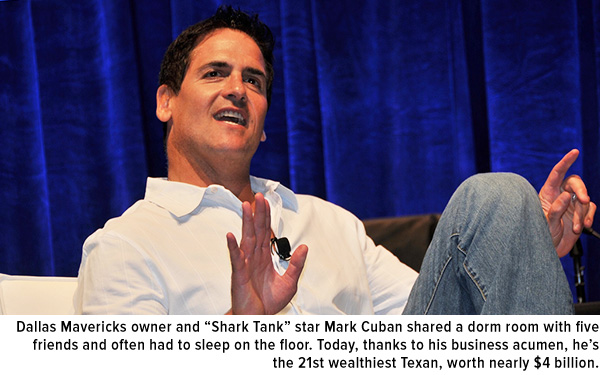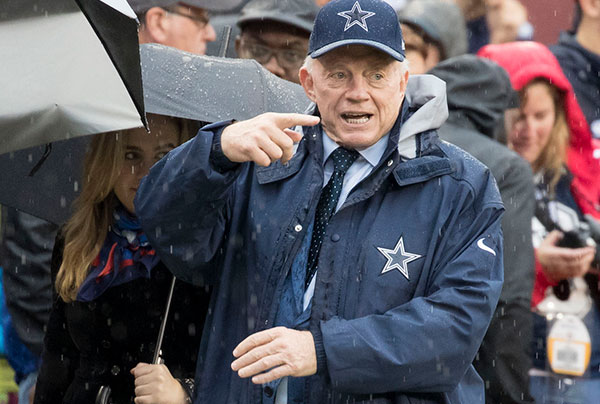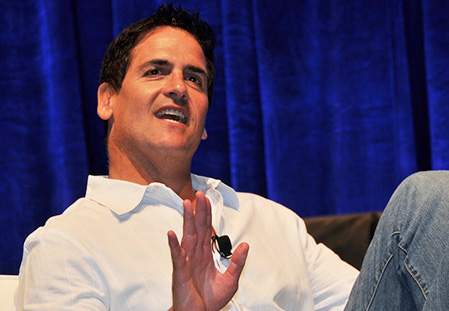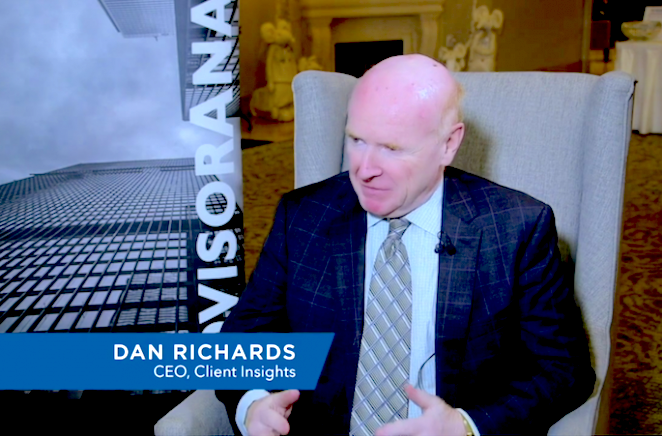by Frank Holmes, CIO, CEO, U.S. Global Investors


A couple of months ago, Forbes updated its list of the wealthiest 400 Americans for 2018, with Jeff Bezos appearing at number one for the very first time. Worth some $160 billion, the Amazon founder and CEO finally dethroned Bill Gates, who had held the top spot for a remarkable 24 years straight.
I was particularly interested in learning about the Texans who made the list, including Mark Cuban, Ross Perot, Paul Mitchell-founder John Paul DeJoria, Lewis Energy CEO Rod Lewis and more. I’ve shared with you before my belief that, thanks largely to low taxes and reasonable regulations, there’s no better place in the U.S. to do business than Texas, the home state of U.S. Global Investors. Texas ended up with 38 billionaires on Forbes’ list in 2018, four more than it did the previous year. That’s also the third most of any state, following California (84 billionaires) and New York (73 billionaires). The wealthiest Texan on the list, and 12th richest American overall, was Walmart heiress Alice Walton, worth an estimated $44.9.
But I wanted to know which of those Texans were self-made, unlike Walton. To exclude those whose fortunes were mostly inherited, I cross referenced Forbes’ findings with the Bloomberg Billionaires Index, which measures people on how they make their money. This ruled out individuals like Walton and a few others.
So below is the countdown of the five wealthiest self-made Texans, beginning with number five.
5. Robert Rowling ($5.8 billion)
Robert Rowling is the chairman and owner of Dallas-based TRT Holdings, which holds recognizable brands such as Omni Hotels & Resorts and Gold’s Gym. It also holds the company founded by Rowling’s geologist father, Tana Exploration, which is where he initially made his extraordinary wealth. A Corpus Christi native, the media-shy 65-year-old now lives in Dallas. He and his wife have made significant donations to the University of Texas at Austin and support conservative political causes and candidates.
4. Richard Kinder ($6.6 billion)
Next on our list is Richard Kinder, who made his vast fortune in the oilfields. In 1997 he cofounded the company he’s best known for, Kinder Morgan, which owns and operates tens of thousands of miles of oil and gas pipelines throughout North America. Before that, Kinder served as president and chief operating officer of Enron, the ill-fated energy company that, in 2001, declared bankruptcy after being caught in perhaps the most notorious accounting fraud scheme in U.S. history. Kinder, 74, stepped down as CEO of Houston-based Kinder Morgan in 2015 but remains its executive chairman and largest shareholder.
3. Jerry Jones ($6.9 billion)

Last year marked the 30th anniversary of Jerry Jones’ $140 million purchase of the Dallas Cowboys. Under his leadership, the Cowboys have been the most valuable team in the National Football League (NFL) for over a decade now, worth some $5 billion in 2018, according to Forbes. The 76-year-old Jones’ latest purchase? A “mega-yacht” measuring 360 feet long—about the same size as a football field—that features two helipads and a garage for water vehicles. The yacht’s reported price tag, $250 million, is over $100 million more than what Jones originally bought the Cowboys for.
2. Andrew Beal ($9.9 billion)
Although not a household name, Andrew Beal is one of the more fascinating individuals on this list. A true self-made billionaire, Beal dropped out of Baylor University and even had a job for a time fixing broken TVs. At the age of 19 he began buying distressed properties, renovating them and selling them for a large profit. In 1988 he founded Beal Bank, headquartered in Plano, Texas, which specializes in purchasing undervalued real estate and savings and loan assets. The firm, of which the Dallas-based Beal owns 96 percent, held close to $8 billion in total assets as of September 2018. What sets the 65-year-old Beal apart from the others on this list is that he’s also an amateur mathematician and highly gifted poker player. The eponymous “Beal conjecture” math problem, formulated by the billionaire in 1993, is as-yet unsolved, and in 2004, he won one of the largest single hands of poker in Las Vegas history, totaling $11.7 million.
1. Michael Dell ($27.6 billion)

And here we are at number one. The wealthiest self-made Texan, and the 39th richest person in the U.S., is Michael Dell, who, in 1984, founded his computer company in his University of Texas at Austin dorm room at the age of 19. According to an interview with NPR, Dell said that one of the things he noticed about the computer business at the time was that it was “very inefficient.” He added: “It took a really long time for the technology to get from the people that made it to the people that were buying it.” Interestingly, one of his earliest customers was fellow Texan and future self-made billionaire Mark Cuban, who bought some hard drives from Dell for his budding software company, MicroSolutions. Four years after the Round Rock, Texas-based Dell Computer went public in 1988, Dell became the youngest CEO of a Fortune 500 company. The company went private in 2013 but, a little more than five years later, is seeking to go public again. The move has set up a legal fight with activist investor Carl Icahn, who filed a lawsuit against the computer company late last year for allegedly withholding “material information.” It was revealed last year that Dell, 53, was the mystery buyer of a $100.47 million Manhattan penthouse in 2014, making it the highest price ever paid for a New York City residence.
The Forbes 400 or 400 Richest Americans is a list published by Forbes magazine of the wealthiest 400 American residents, ranked by net worth. The 400 was started by Malcolm Forbes in 1982 and the list is published annually around September. The Bloomberg Billionaires Index is a daily ranking of the world's richest people. In calculating net worth, Bloomberg News strives to provide the most transparent calculations available, and each individual billionaire profile contains a detailed analysis of how that person's fortune is tallied.
All opinions expressed and data provided are subject to change without notice. Some of these opinions may not be appropriate to every investor.
Holdings may change daily. Holdings are reported as of the most recent quarter-end. None of the securities mentioned in the article were held by any accounts managed by U.S. Global Investors as of 9/30/2018.
This post was originally published at Frank Talk.
Copyright © U.S. Global Investors














